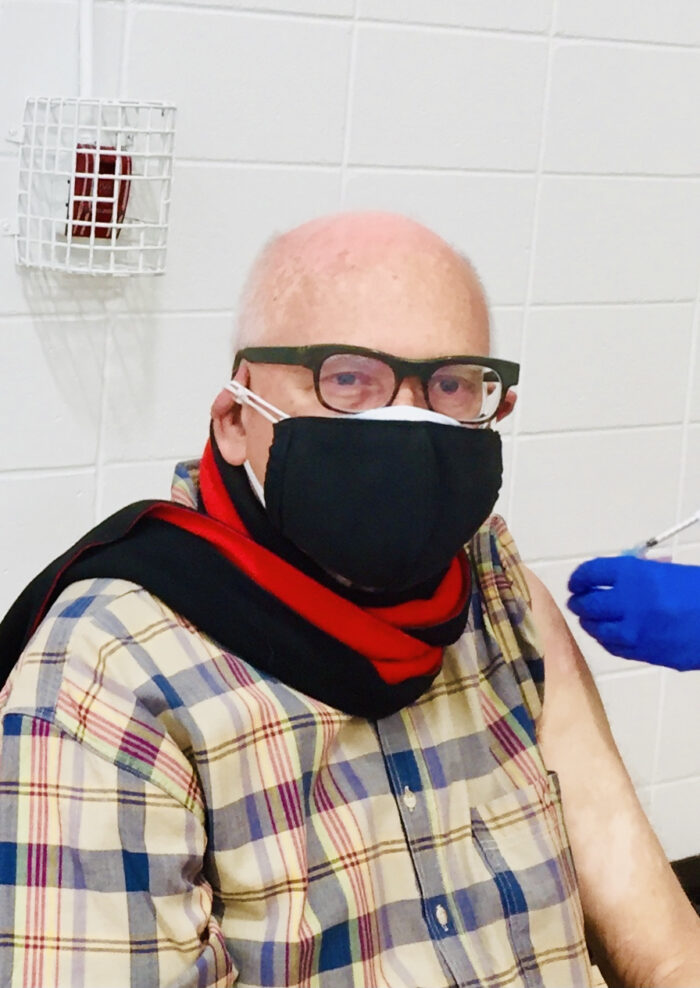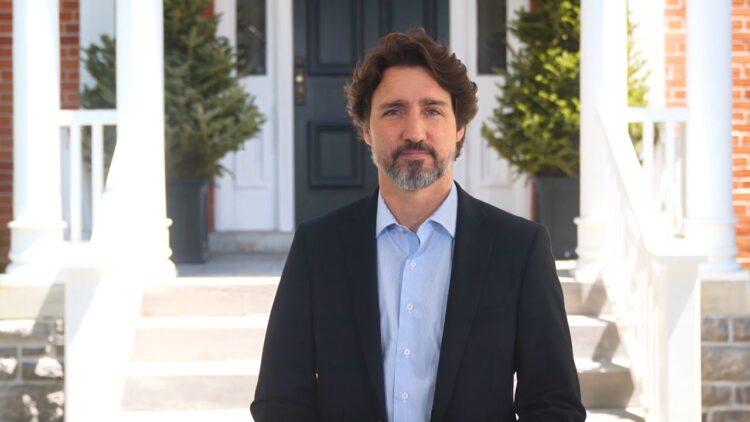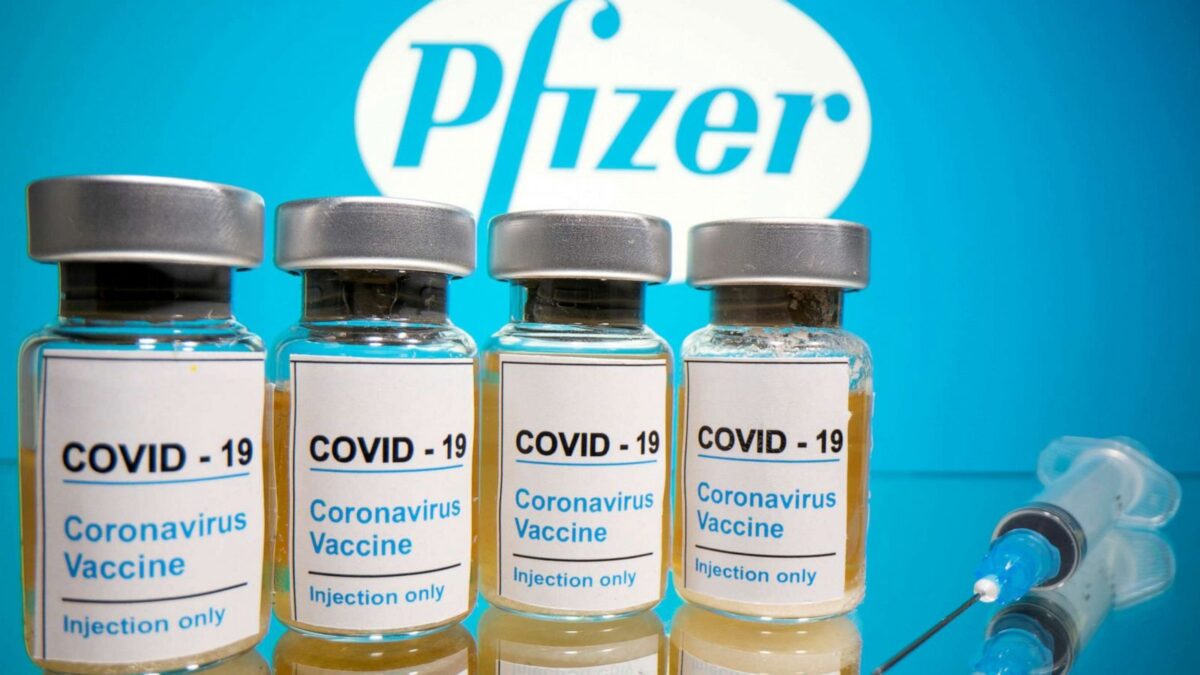I got it!
On March 30, at approximately 10:20 a.m., a doctor administered a 0.3 ml dosage of the Pfizer-BioNTech COVID-19 vaccine into my left shoulder. I felt a fleeting pinprick, and that was it. So far, no side effects.
With this jab, I was partially inoculated, but not completely immunized against the ravages of a once-in-a-century global pandemic, which has killed 23,000 Canadians and 2.8 million people world-wide in the past year.
My wife was vaccinated immediately after me. We will both need a second vaccination, which we are supposed to receive in the third week of July, four months apart from the first one. Pfizer recommends a two-week interval between the first and second jabs, but due to a shortage of supplies in Canada, this regimen, unfortunately, cannot be followed.
This criticism notwithstanding, I was impressed by the speed and efficiency of the process. Less than ten minutes elapsed from the moment we entered the YMCA building in southwest Toronto until we were both vaccinated.

I feel like I’m back in the land of the living, but I know I’m not out of the woods just yet. The vaccine will not be effective for about two weeks, and until then, I will have to continue to exercise precautions to keep myself healthy and safe. I will have to abide by the usual rules that have dominated my life since last March — regularly washing my hands with soap, keeping my distance of strangers outdoors, and wearing a mask, or two masks, in indoor public places.
Regrettably, I still will not be able to socialize with my two daughters until they’re fully vaccinated. Nor, at my wife’s insistence, can I venture into food stores just yet. We have been ordering our groceries online, but I much prefer an in-person shopping experience.
And, of course, travel is still forbidden. My last trips were to Israel and Jordan in the spring of 2019 and then to Cuba in January 2020. I don’t know how much longer I’ll have to wait until I can book our next vacation. Travelling is one of my favorite pastimes, but the coronavirus outbreak has demolished our travel plans.
Since I’m not getting any younger, I’m waiting for the announcements that will restore the status quo ante in international travel. Yet I fear that normalization is still far off.
Although scientists have miraculously managed to develop several vaccinations in less than a year to combat the pandemic, we’ve been mired in a succession of lockdowns that have upended lives and devastated local economies.
In Ontario, for example, the infection rate of late has climbed to more than 2,000 per day. This is a catastrophic number that cannot be sugarcoated. Far too many people are recklessly disregarding the rules and behaving as if everything is normal. The emergence of highly contagious variants has worsened an already bad situation.
Those who refuse to be vaccinated should feel the consequences because they endanger all of us. By the end of the inoculation process, fully vaccinated people should receive special government cards, or “vaccine passports,” that would allow them into shops, restaurants, movie theatres, gyms, sports arenas and the like. The unvaccinated, the potential spreaders of this horrible contagion, should be denied entry into these venues until their common sense kicks in.
In Canada, there is an overarching lesson to be learned from COVID-19. Though it is one of the most advanced, admired and respected countries, Canada has no production facilities to manufacture vaccines and must rely on imported ones. India, one of our chief suppliers, cut exports recently, leaving Canada in the lurch.

As a result, we have been faced with a shocking shortage of vaccine supplies. Canadian Prime Minister Justin Trudeau has had to beg Covax — the international organization that distributes vaccines to poor countries — and the United States for vaccines. President Joe Biden sent us a batch of Astra-Zeneca vaccines, but they have yet to be approved in the U.S. and elsewhere they have been found to be somewhat unsafe.
Only 13 percent of Canadians to date have been vaccinated at least once. By contrast, 51 percent of adults in Israel have been immunized. It’s clear that Canada has fallen way behind, much to the consternation and disappointment of most Canadians.
Trudeau, in the next federal election, may well pay dearly for this fiasco. It’s a deplorable state of affairs. The status quo is simply unsustainable. Canada must become fully self-sufficient in the production of vaccines.
In the meantime, I’m relieved that my wife and I have received our first round of vaccines. We’re one step closer to normalcy, but Canada’s rollout of the vaccine has been unacceptably slow.
